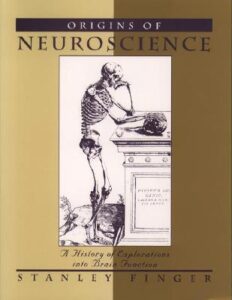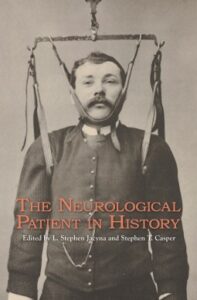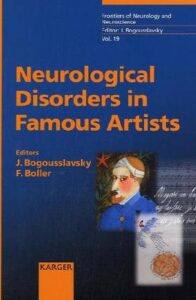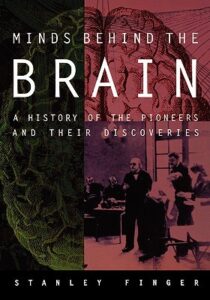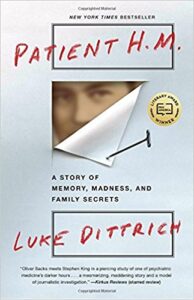Origins of Neuroscience
By: Stanley Finger
Goodreads: With over 350 illustrations, this impressive volume traces the rich history of ideas about the functioning of the brain from its roots in the ancient cultures of Egypt, Greece, and Rome through the centuries into relatively modern times. In contrast to biographically oriented accounts, this book is unique in its emphasis on the functions of the brain and how they came to be associated with specific brain regions and systems. Among the topics explored are vision, hearing, pain, motor control, sleep, memory, speech, and various other facets of intellect. The emphasis throughout is on presenting material in a very readable way, while describing with scholarly acumen the historical evolution of the field in all its amazing wealth and detail. From the opening introductory chapters to the concluding look at treatments and therapies, this monumental work will captivate readers from cover to cover. It will be valued as both an historical reference and as an exciting tale of scientific discovery. It is bound to attract a wide readership among students and professionals in the neural sciences as well as general readers interested in the history of science and medicine.
The Neurological Patient in History
By: L. Stephen Jacyna
Goodreads: Parkinson's, Alzheimer's, Tourette's, multiple sclerosis, stroke: all are neurological illnesses that create dysfunction, distress, and disability. With their symptoms ranging from impaired movement and paralysis to hallucinations and dementia, neurological patients present myriad puzzling disorders and medical challenges. Throughout the nineteenth and twentieth centuries countless stories about neurological patients appeared in newspapers, books, medical papers, and films. Often the patients were romanticized; indeed, it was common for physicians to cast neurological patients in a grand performance, allegedly giving audiences access to deep philosophical insights about the meaning of life and being. Beyond these romanticized images, however, the neurological patient was difficult to diagnose. Experiments often approached unethical realms, and treatment created challenges for patients, courts, caregivers, and even for patient advocacy organizations.
Neurological Disorders in Famous Artists
By: J. Bogousslasky
Goodreads: The study of how a neurological disorder can change the artistic activity and behavior of creative people is a largely unexplored field. This publication looks closer at famous painters, writers, composers and philosophers of the 18th to the 20th centuries who suffered from neurological diseases such as stroke, epilepsy, brain trauma and dementia. The diseases of Van Gogh, Ravel, Poe, Kant, Haydn and many more are diagnosed in retrospect and treatment options according to modern medical technologies are discussed. Presenting fascinating insights into the relationship between brain disease and creativity in famous minds, this publication is highly recommended to neurologists, psychiatrists, physicians as well as to everybody interested in art, music and literature
Minds behind the Brain: A History of the Pioneers and Their Discoveries
By: Stanley Finger
Goodreads: Attractively illustrated with over a hundred halftones and drawings, this volume presents a series of vibrant profiles that trace the evolution of our knowledge about the brain.
Beginning almost 5000 years ago, with the ancient Egyptian study of "the marrow of the skull," Stanley Finger takes us on a fascinating journey from the classical world of Hippocrates, to the time of Descartes and the era of Broca and Ramon y Cajal, to modern researchers such as Sperry. Here is a truly remarkable cast of characters. We meet Galen, a man of titanic ego and abrasive disposition, whose teachings dominated medicine for a thousand years; Vesalius, a contemporary of Copernicus, who pushed our understanding of human anatomy to new heights; Otto Loewi, pioneer in neurotransmitters, who gave the Nazis his Nobel prize money and fled Austria for England; and Rita Levi-Montalcini, discoverer of nerve growth factor, who in war-torn Italy was forced to do her research in her bedroom
Patient H.M.: A Story of Memory, Madness, and Family Secrets
By: Luke Dittrich
Goodreads: Luke Dittrich uses the case of Patient H.M. as a starting point for a kaleidoscopic journey, one that moves from the first recorded brain surgeries in ancient Egypt to the cutting-edge laboratories of MIT. He takes readers inside the old asylums and operating theaters where psychosurgeons conducted their human experiments, and behind the scenes of a bitter custody battle over the ownership of the most important brain in the world. Throughout, Dittrich delves into the enduring mysteries of the mind while exposing troubling stories of just how far we’ve gone in our pursuit of knowledge.
It is also, at times, a deeply personal journey. Dittrich’s grandfather was the brilliant, morally complex surgeon who operated on Molaison—and thousands of other patients. The author’s investigation into the dark roots of modern memory science ultimately forces him to confront unsettling secrets in his own family history, and to reveal the tragedy that fueled his grandfather’s relentless experimentation—experimentation that would revolutionize our understanding of ourselves.
Patient H.M. combines the best of biography, memoir, and science journalism to create a haunting, endlessly fascinating story, one that reveals the wondrous and devastating things that can happen when hubris, ambition, and human imperfection collide.
